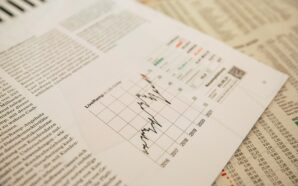Thanks to the euro-zone’s second quarter GDP data that showed the area’s economy exiting from a record-long recession, European stocks managed to erase losses. The Stoxx Europe 600 Index moved up 0.1 percent to 307.89 to finish on a high for the fourth consecutive day, while RWE AG dropped 5.5 percent, which is reported to be among the biggest losses suffered in the index. Standard & Poor’s 500 Index futures fell by 0.2 percent and the MSCI Asia Pacific Index went up by close to 0.5 percent.
Shares of Royal Dutch Shell shot up by 0.4 percent in the wake of Barclays lifting the oil company from equal weight to overweight. Another prominent decline was reported by Germany’s largest steelmaker Thyssenkrupp which dropped 2.4 percent to remain at 16.43 euros. According to the Essen-based company’s chief executive Heinrich Hiesinger, Thyssenkrupp will not make its decisions relying on reporting decisions. “We will not make our decisions dependent on reporting deadlines”, Hiesinger said in a statement. German pharmaceutical distributor Celesio also went down by 2.5 percent to 16.07 euros. Citing fierce discount competition prevailing in the German wholesale market as well as extra negative currency effects, the company downsized its 2013 forecast from 425 million euros to 405 million euros.
Analysts’ Estimates Surpassed
Portugal Telecom SGPS SA retreated 6.3 percent to 2.96 euros after reducing its yearly dividend from 32.5 cents per share in the previous year to 10 euro cents per share for 2013-14. Among those registering impressive gains include Subsea 7 which rose by 8.3 percent to 120.80 Kroner, thereby posting a second quarter net loss of $17.3 million which was against a $131 million forecast by economists. Sales stood at $1.68 billion, thereby surpassing the analysts’ predictions of an estimated $1.65 billion sale.
For the first time in four days, commodities dropped a West Texas Intermediate oil slipped to $106.15 a barrel. Copper rose by 0.5 percent, while Swiss franc dropped against all of its 16 prime counterparts, shedding 0.3 percent to 1.2413 per euro after slipping to 1.2427, which is reported to be the weakest for a month.
A general outlook of the markets showed that they were able to get rid of earlier losses in the wake of euro area managing to come out of its longest-ever recession. As a result, the region’s gross domestic product went up by 0.3 percent, thereby bettering market expectations that forecast a rise in the range of 0.1 to 0.2 percent during the second quarter. Interestingly, the betterment is achieved after the currency bloc’s gross domestic product shrunk by 0.3 percent in the first quarter.
Germany Shows Impressive Growth
In what is widely seen as a clear indication of the region’s powerhouse getting back on its feet, Germany’s economy witnessed an expansion of 0.7 percent compared to the previous quarter, according to the Federal Statistics Office in Wiesbaden. This is against a 0.6 percent gain predicted by the economists. On the other hand, the economy of France grew by 0.5 percent, which is also more than what was anticipated by analysts. While Germany’s DAX 30 Index was a little higher at 8,421.74, France’s CAC 40 Index increased by 0.2 percent to 4,099.08.
-
Plans for Neom’s ambitious “The Line,” a zero-carbon city in Saudi Arabia, have been revised, scaling back its initial...
-
In a significant escalation of the ongoing dispute over misinformation, Brazil Supreme Court Justice Alexandre de Moraes has initiated...
-
Mumbai Takes the Throne for the Most Billionaires in Asia In a historic milestone, Mumbai has overtaken Beijing to...
-
French President Emmanuel Macron emphasized the need for Western powers to remain vigilant in the face of the Ukraine...
-
Ken Griffin, the founder and CEO of Citadel, emphasized the importance of prudence in the Federal Reserve’s strategy regarding...
-
The Philippines has strongly denounced what it described as “unprovoked acts of coercion and dangerous maneuvers” by China in...
-
As Moscow Prepares to Bid Adieu, Navalny’s Funeral Raises Uncertainties and International Allegations The spokesperson for Alexei Navalny has...
-
Michael Saylor, a prominent figure in the world of cryptocurrency, has seen significant gains this week as the value...
-
On the two-year anniversary of the ongoing conflict between Ukraine and Russia, there is much to reflect upon. Since...
-
The Office for National Statistics (ONS) released official figures on Wednesday, revealing that the United Kingdom posted a record...
-
Greece has become the first Christian Orthodox-majority country to legalize same-sex marriage, marking a significant step forward for LGBTQ+...
-
Massive Deflation in China as CPI Plummets by 0.8% China faces mounting challenges as its consumer prices spiral deeper...



















